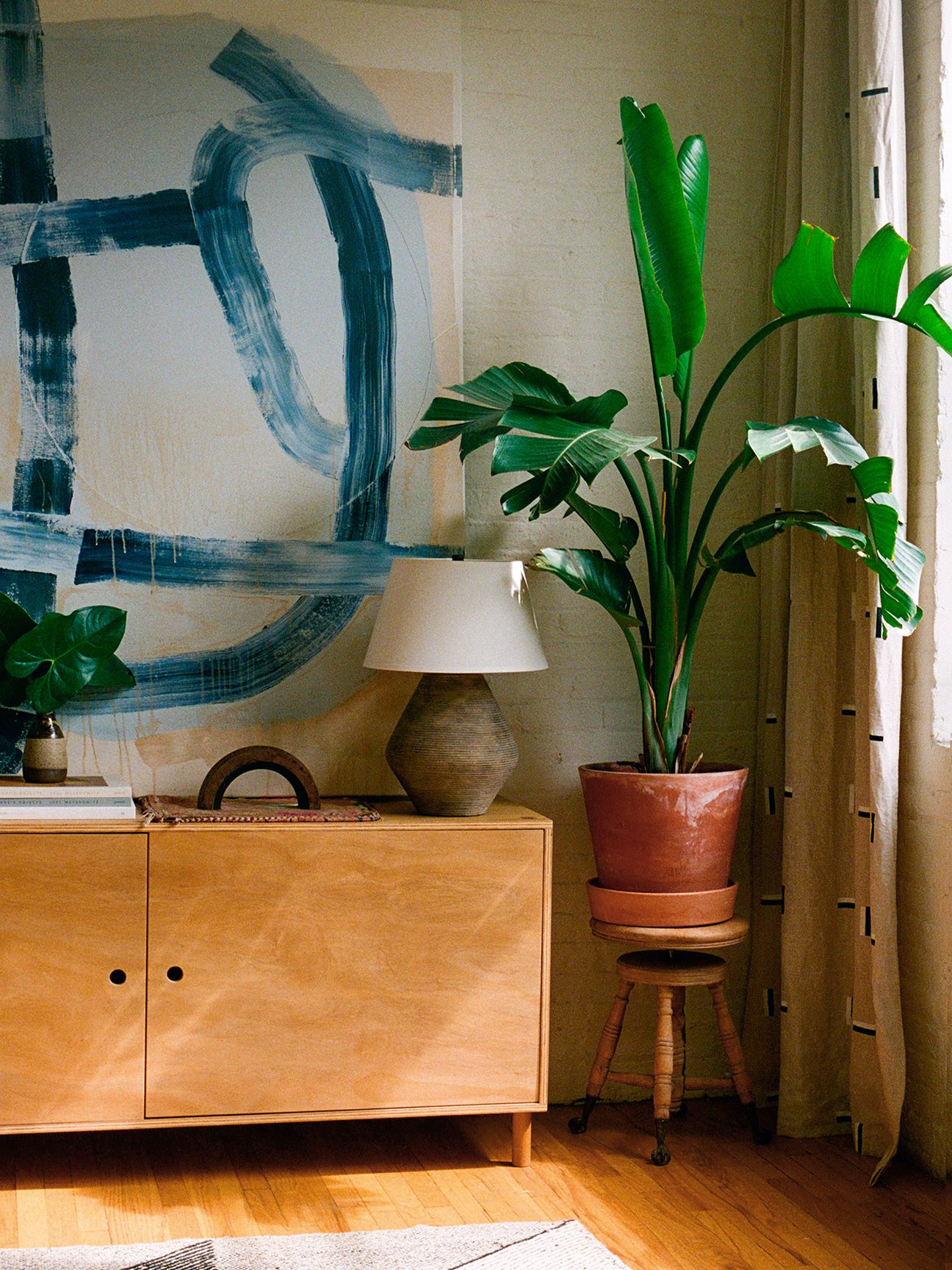We may earn revenue from the products available on this page and participate in affiliate programs.
The day before my family and I began self-isolating at home, I went to a friend’s plant shop. I needed a spider plant repotted, and I wasn’t looking for anything new, but I also showed up with the understanding that I’d likely walk away with a few new additions for my bedroom. The world was beginning to feel increasingly bleak and even scary, so I required proof that amid what we were going through, something beautiful could still thrive.
But plants weren’t always something I was drawn to. For most of my adult life, I believed I was cursed with a black thumb; a complete inability to nurture or help any living thing grow or exist. I’d overwater out of love, then under-water out of fear. And two summers ago, I bought a slew of impatiens to keep on my balcony, which I then forgot about until I realized the pots and the flower corpses were now housing a colony of river spiders (which, unlike my plants, somehow come back bigger and stronger every season).
In an attempt to appear as if I were intentionally posing as the grim reaper of foliage, I embraced my reputation as a plant murderer. I bought stickers that read All my plants are dead and rolled my eyes at friends on Instagram who celebrated their plant babies or the need to move one to a larger ceramic home. My dead impatiens became a symbol of how neglectful and “cool” I was, like an indicator that I was too busy or important to worry about anything that didn’t have a face.
But then last year, I needed a change. After a long winter navigating anxieties, stomach flus, and terrible Ontario weather, I wanted to welcome spring in a way I hadn’t before. I wanted to prove how I’d grown and changed by thinking about something outside of myself. So I went to that same friend’s shop, asked what might survive under my care, and listened when I was given instructions. I picked up three new additions (a spider plant, cactus, and something I still don’t know the name of) and vowed to keep them safe. I wasn’t the woman who killed plants anymore. I was the woman who was willing to accept help from strangers—or, well, plant store employees who made me checklists.
Asking for help—even in terms of plant care—can be terrifying. It’s easier to pretend to have it all figured out and deem yourself an expert over admitting you may need advice. Frankly, it was easier to kill plants than it was for me to lift my mental block and admit that I had a lot to learn. It was easier to fail than to give something my all and then fail anyway.
So I started small. On top of asking for care instructions for my new additions, I checked in regularly with the store on Instagram. I chose to respect my plants by acknowledging that they were living things and home accessories that I couldn’t toss once I got tired of them. And I began to flip my go-to narrative from “I kill everything” to “I’m trying my best” while celebrating every milestone. I bought handmade pots when they outgrew the originals and got new baby succulents to take their place. Soon my plants felt like a reflection of me: I wasn’t stuck in my old ways anymore and had proof of how much things change—both in my mind-set and in the plants themselves.
Which is why I had to add to my leafy menagerie before the lockdown began. I needed to remind myself that not everything would stay the same, and I had to convince myself that life goes on, no matter how scared or lonely you may feel. Especially since so many of the people we need are only a message or check-in away.
It’s hammer time: Follow @reno_notebook for easy rental updates, clever DIYs, and tips to nail your next project.
